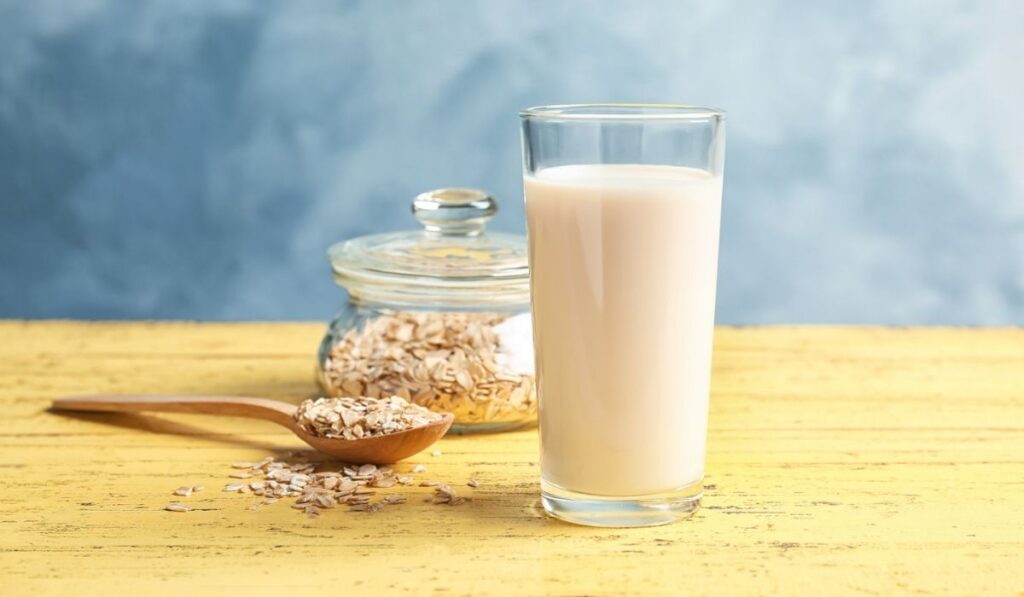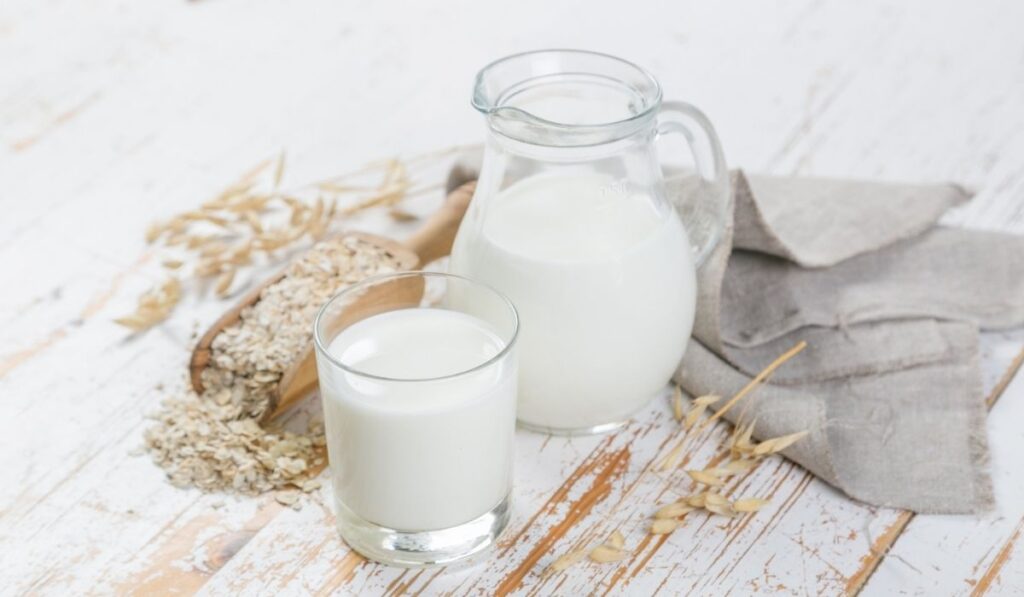Oat milk is a dairy-free substitute for cow’s milk that’s a great option for those with dairy and lactose intolerance, allergies, ulcerative colitis, irritable bowel syndrome, and Crohn’s disease, as well as enthusiasts of vegan and plant-based diets. Oat milk is also an excellent source of minerals and vitamins, including calcium and vitamin B12. So how does it affect your teeth?
Oat milk contains essential nutrients like calcium and vitamin D that help to support teeth strength and rebuild enamel that has been eroded by acidic foods and abrasion. However, many oat milk brands contain added sugar, which can be detrimental to oral health. Opt for no-sugar-added oat milk.
Beyond its impact on teeth, oat milk offers a wide range of health benefits that come from the essential nutrients it offers, such as protein, fiber, and phosphorous. So next time you’re thinking about which type of milk to purchase, why not give oat milk a try? Let’s take a closer look at what oat milk has to offer.
How Oat Milk Can Affect Your Teeth

Oat milk like this example from Chobani (on Amazon) contains a high dose of calcium that supports the building of strong teeth and bones. It also features a high amount of vitamin D, which is essential in maintaining the health and strength of your teeth.
Oat milk, like most other milk you buy from a store, comes with added vitamin D and Calcium to ensure healthy bones, but it also comes with added Riboflavin and vitamin A. This complies with the FDA’s directive for the fortification of non-dairy milk substitutes.
However, oat milk is the only alternative to cow milk that features iron as a key ingredient.
How Does Oat Milk Compare to Cow Milk?
Oat milk provides a handful of important nutrients, as we mentioned, but most of these are fortified, which means they’re added in during manufacturing. The nutrients it contains can also vary widely by manufacturer, so always check the bottle to see what you’re getting.
Cow milk, meanwhile, offers 13 essential nutrients, and most of them are naturally occurring. Cow milk contains protein, calcium, vitamin D, vitamin A, phosphorus, vitamin B12, riboflavin, and more.
Cow milk is known as a major source of protein, offering about 8 grams in every 8-ounce glass. Oat milk, however, offers about half as much protein. Nonetheless, oat milk has more vitamin D, which promotes bone and dental health and strengthens the immune system.
Can Oat Milk Help Repair Your Tooth Enamel?
Eroded tooth enamel is impossible to repair. It will not grow back. However, when the enamel is on the cusp and at risk of eroding, the chances of repairing are high. Oat milk can help strengthen enamel and promote its restoration to a healthy state. Research has shown that oat milk can help repair teeth.
It is important to note that the phosphorus and calcium found in the milk have the potential to restore the minerals the teeth have lost due to acidic food and other causes of enamel erosion. Thus, oat milk has enamel rebuilding properties.
The calcium present in oat milk can build and maintain strong teeth and bones while also serving other essential functions in the body.
Is All Oat Milk Good for Your Teeth?

Oat milk is indeed good for your teeth. However, any type of sugar-loaded milk is detrimental to your teeth and must be avoided. Oat milk that is high in sugar will expose your teeth to harm and risk factors that can cause cavities.
If you consume no-sugar-added oat milk, you can keep your teeth strong and healthy.
It is also important to note that maltose, the natural sugar found in oat milk, has a high glycemic index. Enzymes included during the production procedure break down the natural oat starch into sugar, which produces the sweet taste common in oat milk.
Oat milk is said to have more sugar than other milk alternatives because of the broken down carbohydrates that result in maltose. What’s key is to ensure that you check the label to avoid oat milk with extra sugar, since it is not suitable for the health and strength of your teeth.
Together with enamel-eating acids, sugar attracts small bacteria that cause gum disease and gingivitis. The disease makes the gum recede from your teeth and destroys the protective tissue of your teeth.
The harmful bacteria in your mouth digest sugar, which produces acids and removes minerals from your tooth enamel through the process known as demineralization.
Repeated cycles of acid attacking your gums and teeth can cause a loss of your enamel, which weakens your teeth and leaves them vulnerable to decay. If you leave decay untreated, it can spread to deeper layers of the tooth, causing you much pain and potentially tooth loss.
What’s the Verdict on Oat Milk?
The bottom line is that oat milk is a remarkable dairy-free substitute specially designed for people with milk preferences such as those with lactose-intolerance or similar allergies.
With all the health benefits arising that come with its many vitamins and minerals, including Vitamin B12 and calcium, and its ability to replenish minerals your teeth lost due to abrasion and acidic food, you should embrace the consumption of oat milk — especially the no-sugar-added ones.


